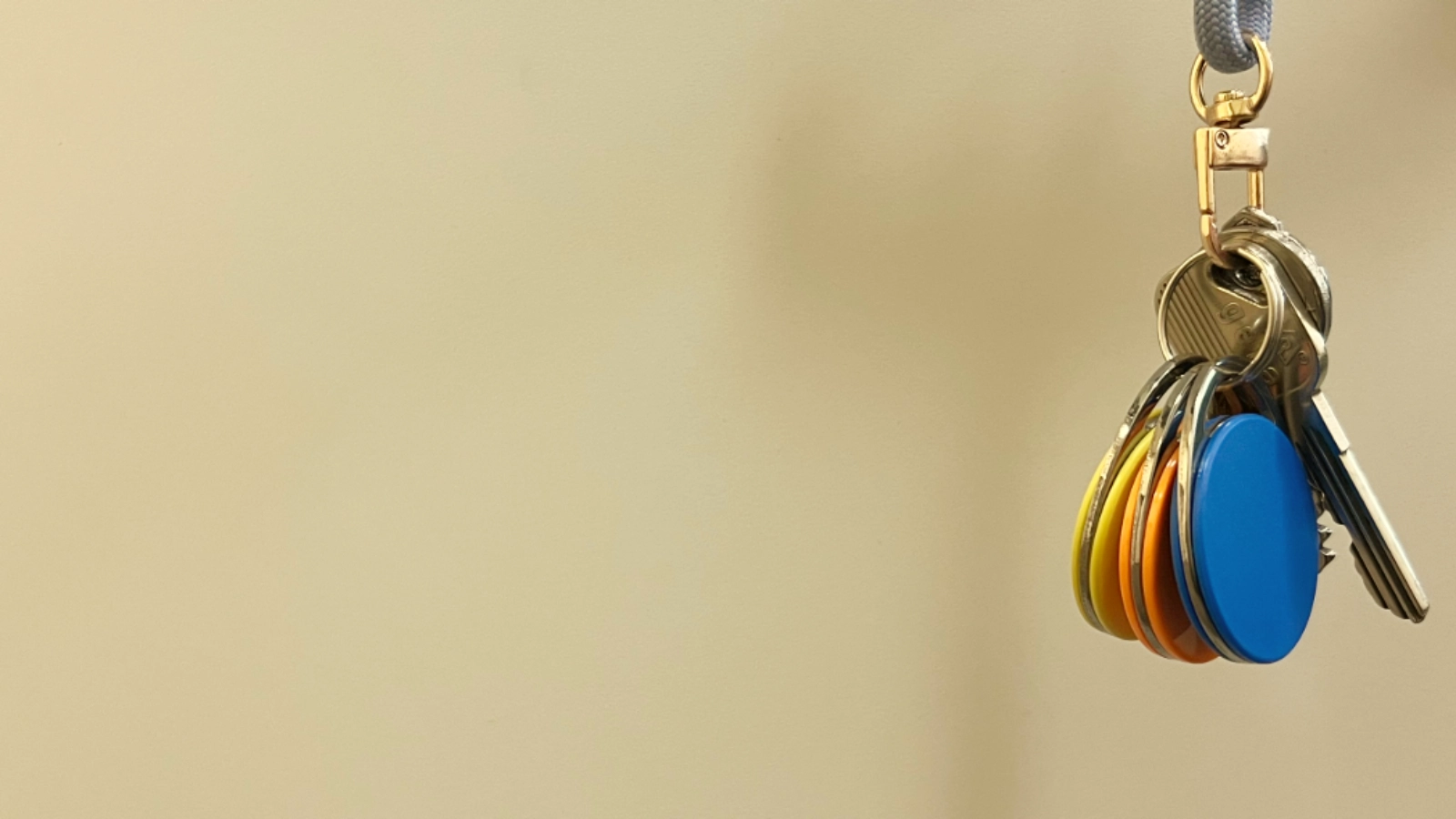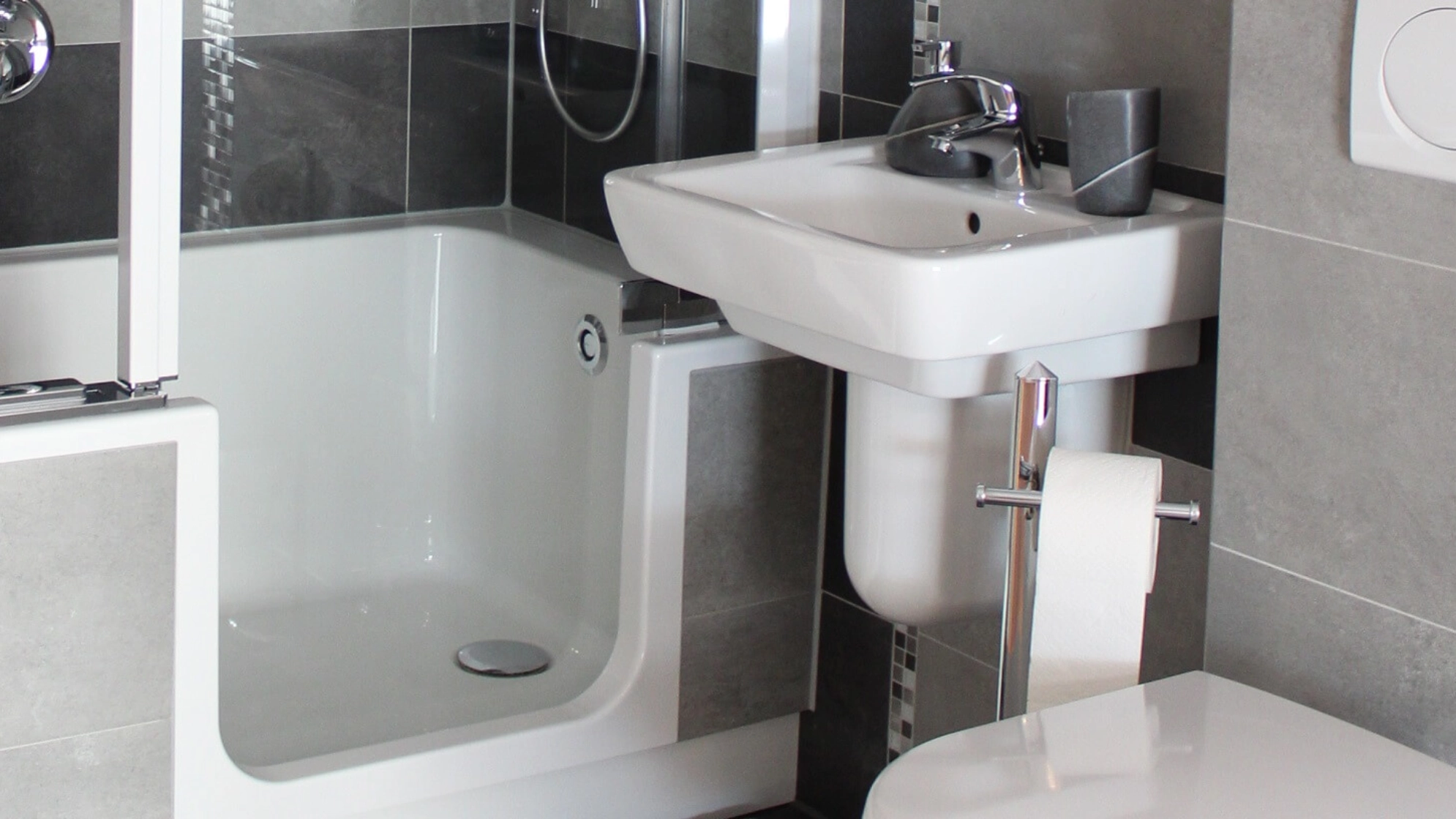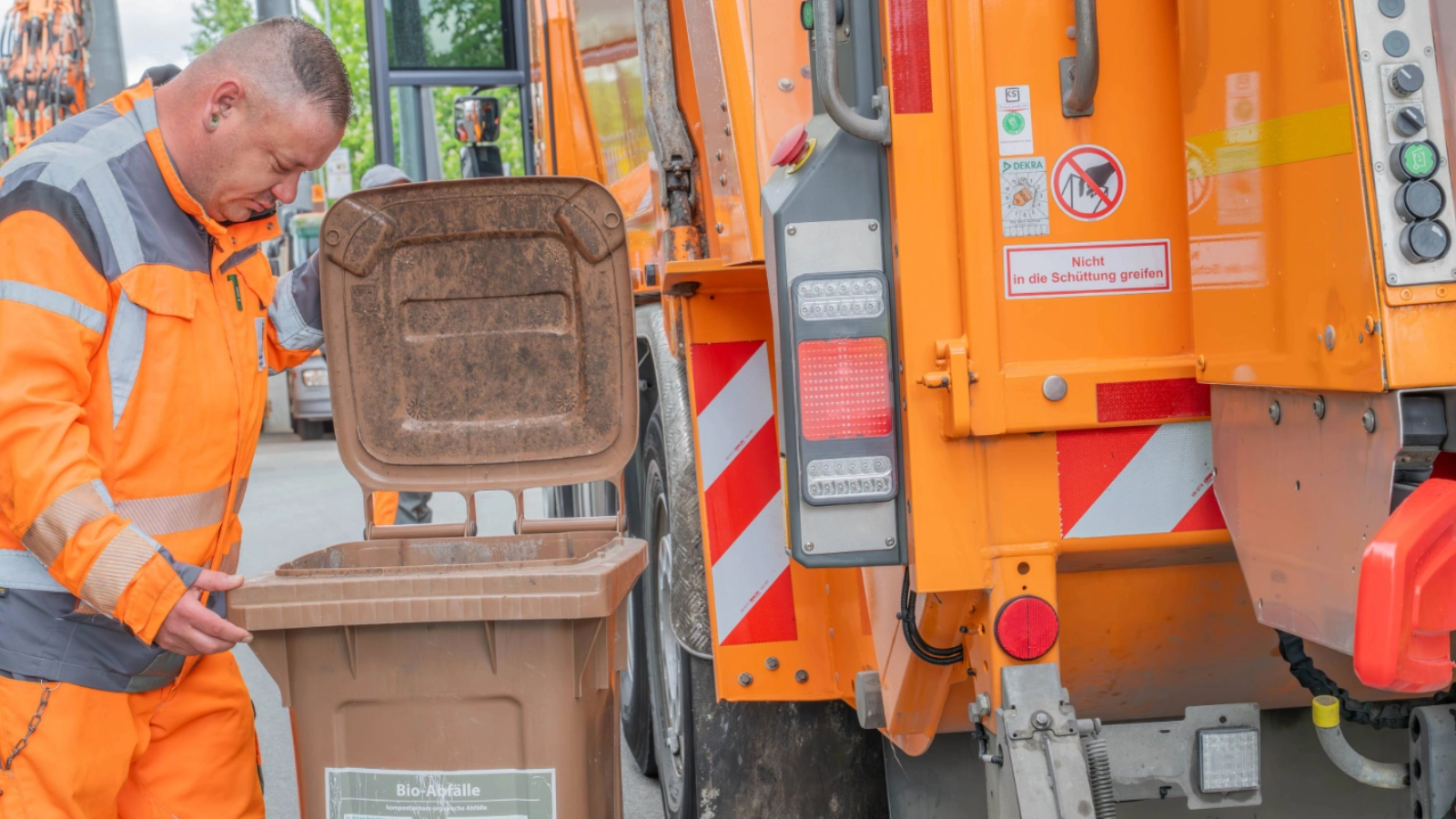Information for tenants & prospective tenants
Formulare, Anträge und Checklisten für Mieter:innen
- file_download Checkliste Mietvertragsänderung
- file_download Antrag auf Aufnahme in das Mietverhältnis
- file_download Antrag auf Mietaufhebung für einen Vertragspartner
- file_download Antrag auf Mietaufhebung und Antrag auf Aufnahme in das Mietverhältnis
- file_download Antrag auf Untervermietung
- file_download Antrag auf Verlängerung der Untervermietung
- file_download Formular Kündigung Mietvertrag
- file_download Formular: Kündigung des Stellplatzmietvertrages
- file_download Checkliste zum Auszug
- file_download SEPA-Lastschriftmandat
- file_download Änderung Bankverbindung
- file_download Vollmacht an Dritte zur Vertretung des Mieters
Information for tenants & prospective tenants
Information for tenants & prospective tenants
Broschüren & Informationen
- file_download Merkblatt zum Heizen und Lüften in den Sprachen deutsch, englisch, arabisch, russisch, ukrainisch
- file_download Merkblatt zum Sperrmüll in den Sprachen deutsch, englisch, russich, arabisch
- file_download Merkblatt zur Mülltrennung in den Sprachen deutsch, englisch, arabisch
- file_download Sozialbroschüre
- file_download Servicebroschüre mit nützlichen Tipps
- file_download Kinderschutzbroschüre
- file_download Wohnschirm
- file_download Seniorenwohngruppe
- file_download Merkblatt Rauchwarnmelder
- file_download Antrag Balkon-PV-Anlage
- file_download Hausordnung (deutsch, englisch, leichte Sprache)
- file_download Datenschutzerklärung
Information for tenants & prospective tenants
Tenant Service
Small animals such as ornamental fish, budgies or hamsters are welcome as "subtenants". Other animals may not be kept in the flat as a matter of principle.
Keeping dangerous animals (which are regulated and listed by the Thuringian Interior Ministry in the Wild Animal Danger Ordinance) is generally prohibited.
Anyone who nevertheless wishes to keep an animal in their flat, especially dogs or cats, must submit a written application to jenawohnen GmbH. The approval of an application is bound to certain conditions and can be revoked by us at any time in the event of violations.
We ask for your understanding that the approval of keeping animals on the part of jenawohnen GmbH is always an individual case decision.
By the end of 2021, the smoke alarms in our flats have been replaced with new ones. After almost ten years of operation, the previous devices are increasingly showing error messages due to the now lower battery status. As a rule, it is always all devices in a flat that are replaced, which can take some time. We ask for your understanding.
To ensure that the little helpers work without any problems, they must not be removed during renovation and painting work! You can obtain free covers to protect the devices at our Service Centres.
In case of malfunctions of the new smoke alarms, please contact our new free smoke alarm hotline 0800 4480030.
If you have a problem with an old smoke alarm, your tenant advisor will help you or, outside office hours, call the emergency service on 03641 884-488.
You have fallen behind with the payment of your rent? Please do not lose any time and immediately contact our staff at the relevant service centre.
Together we will find a solution - for example, an agreement on payment by instalments.
If during a contract period the tenants of a flat change, it is necessary to adjust the contract. There are three possibilities:
- One of the main tenants leaves, the other tenants stay in the flat.
- Nobody leaves, but a new tenant is to be included in the tenancy.
- One of the tenants leaves. At the same time, a new tenant of the same 'type' is to be included in the contract.
What needs to be done?
- First, fill in the form sheet 'Agreement on cancellation of tenancy' and, if applicable, the 'Application for tenancy' (available at your jenawohnen service centre)
- Check with our checklist for prospective tenants, if you need to fill in additional forms for the contract change.
- Have the form sheets signed by all persons involved, including yourself.
- Agree on a date at one of our service centres.
- Come by at our service centre with the completed form sheets, your rental contract as well as all other documents required.
- Then, we will assess whether a change of the rental contract is possible.
Important: We can only can release you form the contract if your rental account is balanced since the other tenants do not only take over all rights, but also all duties.
Our recommendation: Speak to your neighbour in a friendly manner and ask him to be considerate. Talking directly to the tenant next door can have more effect than you think.
Perhaps your neighbour will not change his behaviour despite your friendly request. Or for some reason you do not want to talk to him personally. Then we will take care of your concern.
Important: Please make a note of the date, time and type of the disturbance and hand it over to us. This is the only way we can effectively do something about the disturbance. Other residents of the house may also feel disturbed and can sign as witnesses. Of course, we treat all data and information as strictly confidential.
Note: Outside our office hours, please call the security service, tel.: (03641) 884-488. They can clarify the matter on site at short notice.
In general, you are not responsible for looking for or presenting a new tenant to us, because jenawohnen GmbH has already registered numerous interested parties who are looking for a flat. As soon as we receive notice that a tenant leaves their flat, we offer it to suitable prospective tenants from our file.
However, if you have already found a potential next tenant, we will also take them into account when allocating the flat.
Do you want to leave items of furniture in the flat? Or do you want to shorten your cancelation period by finding new tenants yourself? We will be happy to consider your wishes when re-letting the flat. However, when selecting a new tenant, we focus on other decision-making criteria.
It is important to note that we at jenawohnen GmbH always make the decision ourselves as to which prospective tenant will be accepted as a new tenant. The prospective tenant presented by you is not necessarily entitled to be selected.
Any structural changes to your flat must first be approved by us . In addition, the measure must be carried out by a specialist.
Tip: With our special service wohnenplus, we are on hand with help and advice if you want to rebuild or renovate.
Are you still looking for the right tradesman? Would you like us to supervise the construction work for you? Try out wohnenplus now!
Eine Kündigung muss zwingend von allen, im Vertrag stehenden Mietern unterschrieben und Ihrem Mieterbetreuer zugesandt werden. Gerne können Sie hierfür unser Kündigungsformular verwenden.
Bitte beachten Sie immer die im Vertrag stehenden Kündigungsfristen. Unabhängig von Ihrem Wunschtermin für den Auszug bestätigen wir immer mit der gesetzlichen und vertraglich festgehaltenen Kündigungsfrist.
Im Anschluss zur Kündigungsbestätigung werden wir mit Ihnen einen Termin für die Vorabnahme vereinbaren. Bitte beachten Sie die Vorabnahme und ggf. Abnahme der Wohnung erfolgt durch einen Mitarbeiter/in aus der Abteilung Instandhaltung. Bei diesem Termin wird mit Ihnen besprochen was alles für eine ordnungsgemäße Abnahme noch zu erledigen ist. Hier ist auch ein guter Zeitpunkt, um bestimmte Fragen anzubringen – Nachmietervorschlag? Übernahme Einrichtungsgegenstände? Vorzeitige Mietende?
Erst nach der Vorabnahme wird die Wohnung zur evtl. Weitervermietung freigegeben.
Wichtig – auch hier gelten gesetzliche und vertragliche Kündigungsfristen. Der Tod eines Mieters bedeutet kein Sonderkündigungsrecht.
Um eine rechtsgültige Kündigung bei Todesfall bei jenawohnen einzureichen, benötigen Sie zwingend eine (Vorsorge-)Vollmacht, welche über den Tod des Mieters hinaus geht. Ebenfalls möglich ist ein Erbschein oder ein Testament, welches Sie berechtigt das Mietverhältnis aufzulösen. Weiterhin besteht die Möglichkeit in das Vertragsverhältnis einzutreten, wen dies vom Erben gewünscht ist.
Nach Eingang einer rechtsgültigen Kündigung verweisen wir auf den herkömmlichen Ablauf unseres Kündigungsprozesses, welchen Sie unter „Ich möchte meine Wohnung kündigen, wie mache ich das und wie ist der weitere Verlauf?
Bitte melden Sie einen Schimmelbefall in der Wohnung bei Ihren zuständigen Mieterbetreuer. Dieser wird Sie über die weiteren Maßnahmen informieren.
Für einen Untermieter ist ein Antrag nötig, hierfür können Sie gerne unser Formular für den Antrag auf Untervermietung verwenden. Sie müssen den Antrag gemeinsam mit dem Untermieter und allen im Vertrag stehenden Mietern ausfüllen. Sobald der Antrag ausgefüllt und unterschrieben ist kann sich der zukünftige Untermieter im Servicecenter einen Termin buchen, damit wir ihn/sie in unserem System mittels Personalausweises aufnehmen können.
Was ist der Vorteil an einer Untervermietung? Sie teilen sich die Miete schnell und unbürokratisch. Weiterhin ist bei Wiederauszug des Untermieters ist nur noch eine kurze Info an Ihren Mieterbetreuer notwendig und er wird aus unserem System gestrichen. Es besteht keine vertragliche Vereinbarung mit jenawohnen.
Was ist der Nachteil an einer Untervermietung? Sie sind für den Untermieter verantwortlich, sollte es aufgrund des Untermieters zu Beschwerden kommen.
Wichtige Informationen zur Genehmigung Ihrer PV-Anlage finden Sie in unserem FAQ.
Die meisten Häuser und Wohnungen der jenawohnen GmbH sind an das vorhandene Breitbandkabelnetz der Tele Columbus GmbH und Kabel Deutschland angeschlossen.
Daher ist das Anbringen einer Satellitenempfangsanlage in den Objekten der jenawohnen GmbH grundsätzlich untersagt.
Wollen Sie als Mieter über den Kabelanbieter eine Vielzahl weiterer Sender empfangen, können Sie sich dazu ein Zusatzgerät anschaffen (Decoder für digitale Kabelprogramme). Darüber hinaus besteht auch die Möglichkeit des Fernsehens über das Internet.
Operating costs
Once a year, you as a tenant receive a statement of operating costs from jenawohnen GmbH, in which all flat-related costs are listed exactly and for the year in question.
According to the law, we have 12 months after the end of the accounting period to send you the statement. Of course, we will always try to send it to our tenants as quickly as possible.
Unfortunately, however, it is not possible to prepare the operating cost statement for all 14,400 tenants at the same time due to logistical reasons, which is why there are different delivery dates.
If you need the statement of operating costs for your tax return, you can first use the statement from the previous accounting period. Please inform the tax office that have not yet received the new statement, but that you will submit it later.
The advance payment for operating costs consists of two separate parts: the net operating costs and the heating costs. It can happen that too much has been paid in advance for one of the two and too little for the other. These then balance out altogether. Nevertheless, for the next settlement period, the part for which too little was paid in advance in the previous year will be increased so that no additional payment will be necessary again.
It seems to me, that my heating costs are quite high. How can I save heating energy?
Tip: Set a constant temperature on the thermostatic valve of your radiator. Then, the thermostat regulates the room temperature completely automatically. The desired room temperature is kept constant without you having to touch the thermostatic valve again.
Better not: Do not heat your living spaces "on demand". Constantly changing the thermostatic valve to a higher or lower temperature has been proven to lead to significantly higher heating costs.
Remember: If a cool room has to be reheated, this costs more energy than if you keep the temperature in your rooms more or less constant! You do not save any heating energy by constantly adjusting the thermostatic valve - but quite the contrary.
So: Set an even temperature on the thermostatic valve of your radiators. Heat each room separately. Keep the doors to any rooms that are not heated shut.
I moved into my flat in October and have a high additional payment for heating costs - what is the reason behind this?
In winter, you have to heat more than in summer due to the lower temperatures outside. Consequently, heating costs are higher in the cold season than in the warm months of the year.
If a tenancy exists over an entire billing period (January to December of a year), then the costs for heating (monthly advance payments) compensate one another over the year:
In the months of January to March/April, the heating costs are relatively high - higher than the monthly advance payment, which is based on an annual average ("day degree figures").
In the following months, however, consumption will be much lower due to rising outdoor temperatures. Your monthly advance payment will therefore be comparatively too high. The amount of the monthly advance payment within a billing period generally remains unchanged. However, since no heat is taken in the summer months, but the same monthly advance payments continue to be made as in winter, the costs for the heat supply ultimately balance out each other on an annual average.
If you only move into a flat in October, such an equalisation is not possible. According to the day-degree table, the months of October, November and December are among the most heating-intensive months of the year. The costs for heating during these months therefore exceed the monthly advance payments, which are calculated based on the summer heat consumption. This is the reason behind the additional payment.
Your waste disposal costs are made up of the basic fee per inhabitant and the volume-based fee per collection of residual waste. The basic fee already includes the costs for the disposal of organic waste, paper, light packaging etc.
If we consistently separate our waste, the volume of residual waste decreases. In this way, the volume-based fee for waste disposal can be reduced by up to 50 percent.
Help us! Waste separation saves resources and returns recyclable waste to the material cycle. You too can make an important contribution to the environment - and at the same time save costs for waste disposal.
The tasks of the security service at a glance:
S - Security
O - Order
C - Cleanliness
The security team
- ensures security in the flats and in your living environment
- ensures that tenants observe the house rules (especially the quiet hours)
- monitors the traffic safety obligation in the residential area (makes sure that danger zones are secured and that escape routes in the houses as well as fire brigade access routes are kept clear)
What else does the security service do?
- They check the interior and exterior lighting.
- They check whether all doors and windows can be shut/locked.
- They report urgently needed repairs.
Emergency number security team:
(03641) 884-488 (daily between 6 p.m. and 4.30 a.m.)
jenawohnen GmbH assumes 30 % of the total costs for the security service and the caretakers. This 30% corresponds to the share of administrative costs. In contrast to the apportionable tasks of the security service and the caretakers, such as ensuring compliance with the house rules or monitoring technical installations, repair and administration costs are also incurred that are not passed on to the tenants. Thus, only 70 % of the costs have to be assumed by the tenants. Irrespective of this, the caretaker documents their work performance on a daily basis, based on which the share of administration and maintenance costs can be verified.
The item "garden maintenance" includes, amongst others, staff costs for garden maintenance, mowing and fertilising of the lawn, cutting bushes, trees and hedges, watering plants, and the electricity- or gas costs for the grass cutter.
The operating cost item "rainwater" was levied for the first time in 2004. The reference value for the precipitation water charge is the respective living space.
The charges are incurred for the disposal of precipitation water, such as the discharge of rainwater in sewers.
How much rainwater is discharged from the property into the public sewage system depends on
- the sealed and connected areas and
- the type of sealing of these areas.
Sealed and connected surfaces are thus differentiated according to whether they are "asphalted", paved with "ungrouted flagstones" or with "grass pavers (eco-pavers)". In the case of connected roof surfaces, a further distinction is made between "normal roof surfaces covered with roof tiles" and "green roofs".
Basically, the water is always supplied as cold water. Therefore, the total water consumption of cold and hot water is combined under the item "Cold water consumption". Under the item "hot water consumption", only the energy used to heat the hot water is billed.
Operating costs
Seit 2024 erfolgt in unseren Gebäuden die Umstellung von herkömmlichen auf elektronische Schließsysteme. Was das für Sie als Mieter bedeutet und welche Vorteile das digitale System mit sich bringt, erklären wir Ihnen in den Antworten auf häufig gestellte Fragen:
Operating costs
Sie sind Mieter in der Gotthard-Neumann-Straße 2, 4, 6, 19 oder am Salvador-Allende-Platz 9-23? Wir haben die häufigsten Fragen und Antworten über die bedarfsgerechte Heizungssteuerung für Sie zusammengefasst:












